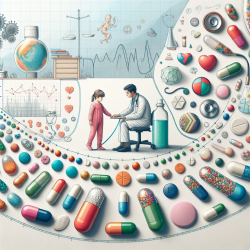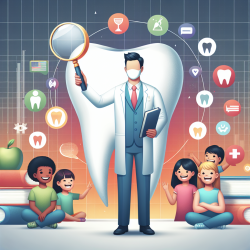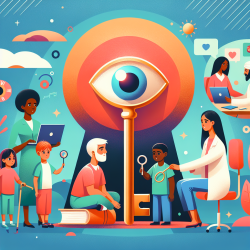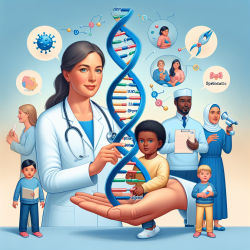Understanding the Pharmacological Revolution in Child Therapy
In the ever-evolving landscape of therapeutic practices, the research article titled "Beyond America's War on Drugs: Developing Public Policy to Navigate the Prevailing Pharmacological Revolution" provides a profound insight into how societal changes influence drug policy and, subsequently, therapeutic practices. As practitioners in speech-language pathology and related fields, understanding these dynamics is crucial for creating effective, data-driven therapeutic interventions for children.
The Shift from War on Drugs to a Pharmacological Revolution
The research emphasizes a shift from the traditional "War on Drugs" metaphor to a more nuanced understanding of a "Pharmacological Revolution." This shift acknowledges the complex socio-cultural factors that influence drug use and misuse, moving away from a purely punitive approach to one that considers the broader societal context.
For practitioners, this means recognizing that drug use, including the use of pharmaceuticals in therapy, is not just a medical issue but a cultural one. Understanding this can lead to more empathetic and effective therapeutic strategies that consider the child's social environment and cultural background.
Implications for Child Therapy
As we navigate this Pharmacological Revolution, it's essential to integrate these insights into therapeutic practices for children. Here are some key takeaways for practitioners:
- Holistic Understanding: Recognize that a child's therapeutic needs may be influenced by broader socio-cultural factors. Tailor interventions to consider these contexts.
- Data-Driven Approaches: Utilize data to understand the impact of pharmaceuticals on child development and therapy outcomes. This approach can help in making informed decisions about therapy plans.
- Collaborative Efforts: Work with families, educators, and healthcare providers to create a supportive network that acknowledges the child's cultural and social environment.
Encouraging Further Research
The research encourages practitioners to delve deeper into the socio-cultural aspects of drug use and therapy. By doing so, they can contribute to a more comprehensive understanding of how the Pharmacological Revolution affects therapeutic practices. This can lead to innovative approaches that improve outcomes for children.
Conclusion
The insights from the research article "Beyond America's War on Drugs: Developing Public Policy to Navigate the Prevailing Pharmacological Revolution" are invaluable for practitioners focused on child therapy. By understanding the broader socio-cultural context of drug use, practitioners can develop more effective, empathetic, and data-driven therapeutic interventions.
To read the original research paper, please follow this link: Beyond America's War on Drugs: Developing Public Policy to Navigate the Prevailing Pharmacological Revolution.










